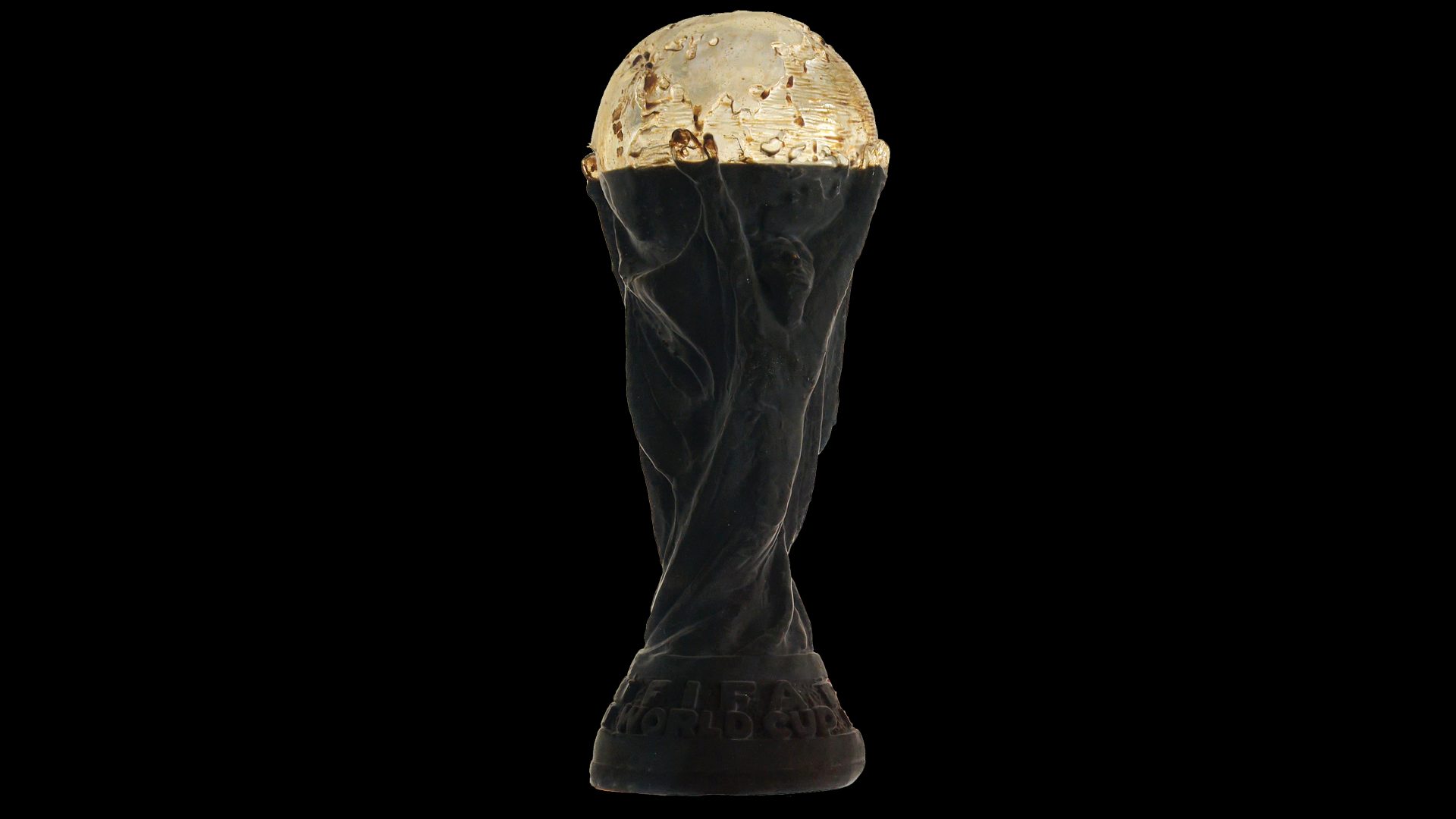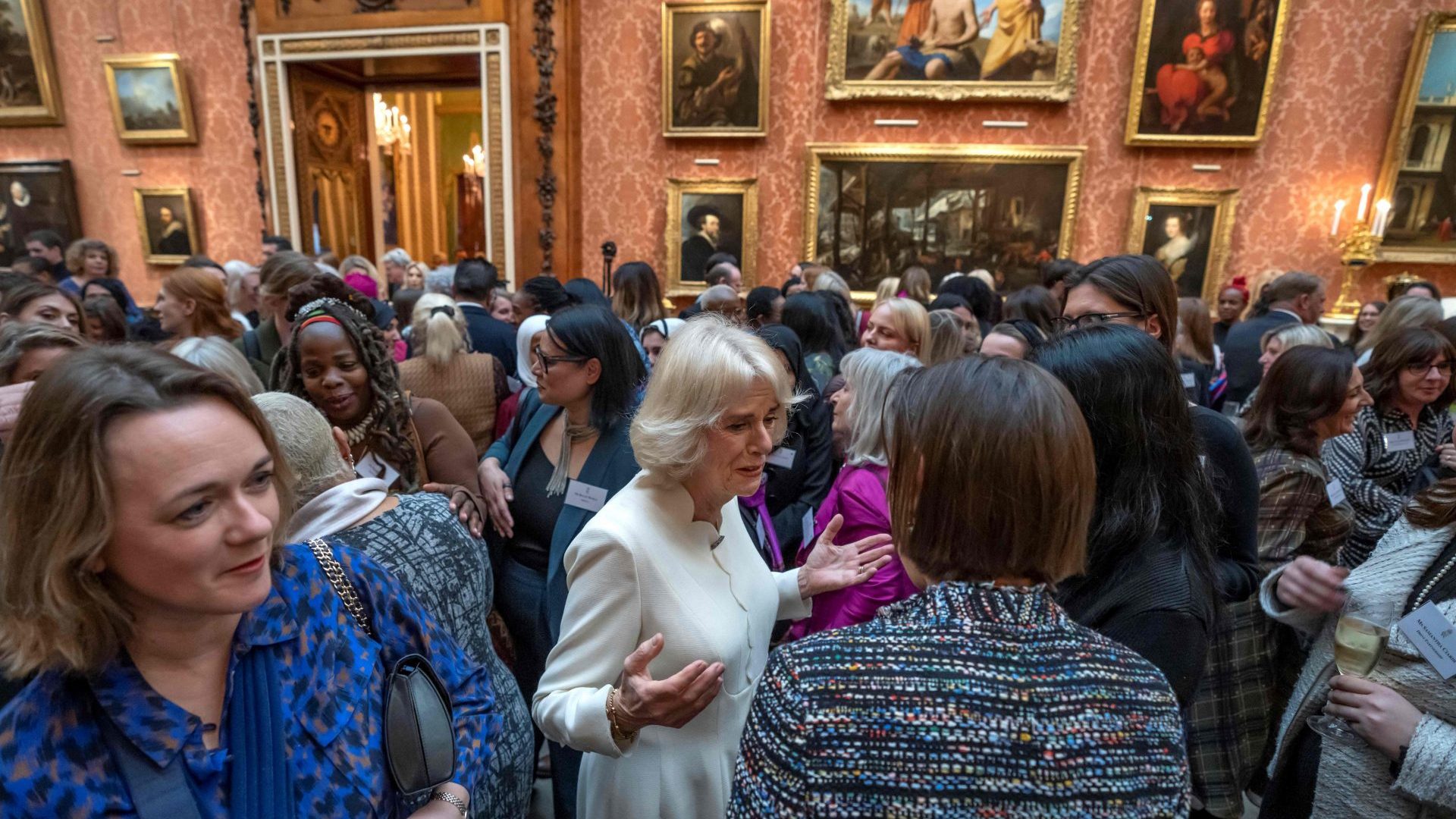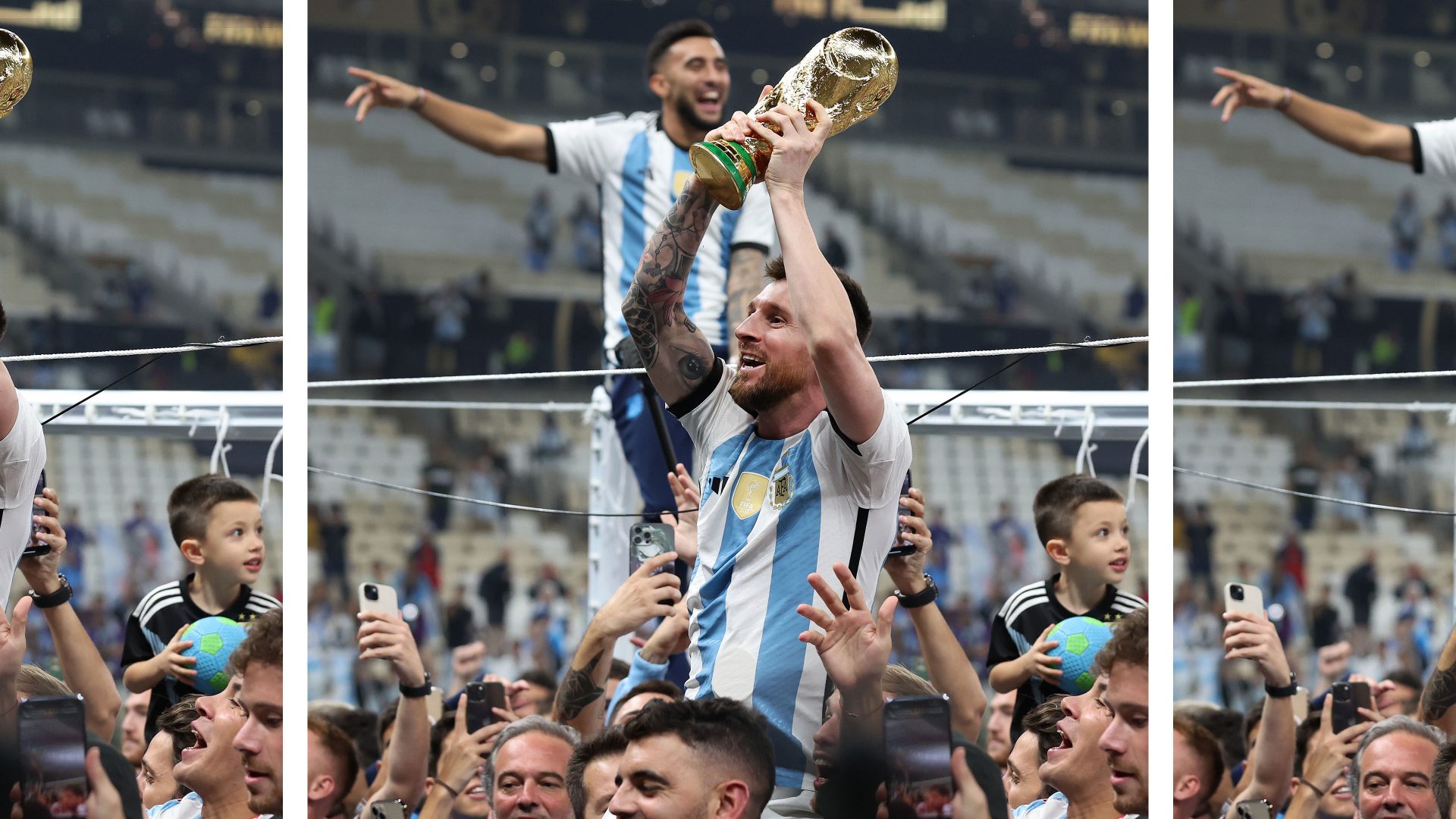Two of the most sought-after things in the world have been celebrated together in Qatar over the past few weeks: oil and football. Perhaps we’d
be better off without them, but it’s like the joke Woody Allen tells in Annie
Hall: “A guy walks into a psychiatrist’s office and says: ‘Hey doc, my brother’s
crazy! He thinks he’s a chicken.’ Then the doc says: ‘Why don’t you turn him
in?’ Then the guy says: ‘I would but I need the eggs!’”
The World Cup has combined with Cop27, the United Nations climate conference that took place in Egypt just before the big kick-off, to clarify the point that no matter what we do and how deeply we think about things, we have no intention whatsoever of living without the eggs. And if that means being made a fool of by the egg-provider, it’s a price we’re willing to pay again and again.
He’s never early, he’s always late, says the accepting addict in The Velvet
Underground’s I’m Waiting for the Man; first thing you learn you always gotta
wait… and this ceremony of dealer’s contempt, the dealer’s soul-deep pleasure in making still greater fools of his foolish, addicted clients, has been the keynote of the World Cup.
This principle was spelt out with pedantic clarity in the matter of beer. Just in case we had missed all the evidence since Qatar was awarded the World Cup in 2010, the host nation made it quite obvious who was boss by moving the goalposts about the availability of beer.
Football is for everybody, right? The sport’s governing body Fifa’s stated core principles include “Football unites the world” and “no discrimination”: without them their major earner, the World Cup, would be impossible. Sincerity is, of course, optional, but everyone has always played along. Till now.
All the nations who have previously staged the World Cup revelled in their
world-uniting posturing, in the belief that the world’s love of football would
rub off on them. In 2018 the tournament was held in, ah, Russia – but Russia did what it could to play the part of the good guy. You can say what you like about the government’s real reasons for holding the event, but the Russian World Cup was based on the idea of showing the world that Russia was a Nice Place full of Great People.
In 2014 the tournament was held in Brazil, and it was a demand for respect for a grown-up, modern and sophisticated nation; one that loved football and could therefore be loved by all. Four years earlier the World Cup was in South Africa: a demonstration that the country had grown beyond the apartheid years to become a united and wholly loveable place, the tensions of history forgotten.
We’re nice! We’re kind, we’re decent, we’re tolerant: all are welcome, come and visit us, come and do business with us and remember to treat us with generous understanding in international affairs: classic use of what’s become known as soft power.
The next World Cup will be jointly hosted by Mexico, United States and Canada: loving neighbours. One possible bid for the 2030 competition is a joint effort involving Spain, Portugal and Ukraine: unbeatable for good vibes. There’s also likely to be a bid from Saudi Arabia, about which the vibes are less good (unless you are on the board at Newcastle United).
But from the moment Qatar got the World Cup they rejected convention and turned on Fifa and its stated values. Why play the nice guy? We’ve got oil.
So the Qatari organisers banned beer from the stadiums, even though they had previously agreed with Fifa to allow the sale of reasonably priced beer before matches and Fifa had a contract with Budweiser. Qatar may be a Muslim country but they were hosting the World Cup and had agreed to play the role of generous, lovable and inclusive hosts.
First, the beer was to be sold for £12.50 per half-litre: the approximate price per gulp of supermarket champagne. And then, just two days before the tournament kicked off, they announced that beer would not, after all, be sold in stadiums.
It was beautiful. You had to admire it in a way: a perfectly calculated insult not just to Fifa but to all non-Islamic nations. We’re not interested in looking nice: we’re interested in looking tough, in a very Islamic kind of way. Why not? We’ve got oil.
It was easier to get a drink at Cop27, but it was not a champagne occasion. The idea of limiting the rise in climate down to 1.5 degrees looks less feasible every time the “conference of the parties” gets together. We had the
now-traditional statements about this really being the very last of humanity’s
last chances, and then the world agreed to do absolutely everything it could to achieve 1.5… apart, of course, from giving up oil.
The conference’s agreed cover text summing up the proceedings made no reference to any goal of phasing out all fossil fuel. Those who attended the do in Sharm El-Sheikh remarked on the vast number of people from the oil and gas industries who also turned up, saying that it felt at times like a fossil
fuel trade fair. There’s always an element of farce when humans deal with major issues.
The Qatar beer ban is a small example of such farce: part of a pattern established as soon as Qatar was awarded the World Cup. They agreed to everything Fifa asked and then did whatever they wanted, often the exact opposite. Why not? Qatar had bought Fifa and were entitled to value for money.
There was shock and disbelief back in 2010 when Qatar won the right to stage the World Cup. The entire bid was absurd. The country is tiny, fewer
than three million people, with no great footballing tradition, no network of cities to hold the games, not nearly enough stadiums, no experience of mass tourism, a great deal of desert and summer temperatures in the mid-40s.
So how did they get the tournament? There is nothing controversial in stating that Fifa is a contemptible organisation with a long history of corruption. A good half of those who did the voting in 2010 were subsequently accused of wrongdoing in various forms. The then president, Sepp Blatter, his right-hand man Michel Platini and the former head of the Qatar FA have all been banned from football. Lord Triesman, former chairman of the English Football Association, reported that four voting members had asked him directly for money or other favours to vote for an England World Cup bid. Fifa conducted a two-year investigation into the 2010 vote – and “discovered” that nobody had done anything wrong.
The Qataris countered objections to their pizza-oven summers with the promise that the stadiums would be wonderfully air-conditioned: why, even the players would scarcely break sweat. Five years later, they said that this wasn’t actually true. The tournament would have to be held in November and December and you’ll just have to disrupt domestic football across Europe. Fifa went along: by then they had no other option. The European leagues and their big clubs were first dismayed and then furious.
Then Qatar moved the opening match a day earlier, or rather Fifa moved it because Qatar told them to… perhaps just because they could. Then came the business of the armbands. Seven European nations had agreed for their captain’s armband to take the form of a rainbow and the words “one love”: it was supposed to be a dignified statement about inclusivity. It didn’t say anything special about LGBTQ inclusion, though obviously implied just that. Homosexuality is illegal in Qatar.
Fifa had known about the armbands for months but kept quiet, no doubt waiting to see which way Qatar would jump. The nations involved – England, Wales, Germany, Belgium, Denmark, Netherlands and Switzerland – were prepared to accept a fine: they saw this as a sound principle and important PR.
England were due to play first. Ten minutes before they left for their opening match, a Fifa delegation arrived at their hotel and told them that anyone who wore such an armband would face “unlimited disciplinary action”. At the very least a booking. Perhaps banned from the tournament. Nobody knew.
Fifa were threatening sporting punishment for a non-sporting offence. You get a booking – a yellow card – for a bad tackle, a tactical foul, other wrongdoings on the football pitch. Do it twice and you get sent off, so it’s reasonably serious. Annoying the hosts was now on the same level as kicking Cristiano Ronaldo. The rules of football had been changed to please Qatar.
Steffen Simon, media director of the German football federation DFB, described this as “extreme blackmail”. There was a rumour, subsequently denied, that Denmark might resign from Fifa. Various public figures managed to get in shot with the armband.
And then of course, there was a little farce: Laura McAllister, former captain of Wales’ women’s team, was told to remove her rainbow-patterned hat; a Brazilian fan had his rainbow flag confiscated – the official state flag of Pernambuco.
This was all a deliberate display of intolerance. Football unites the world, says Fifa. Qatar responded: yes, sure – apart from people we don’t like. Qatar could insist on this because Qatar had bought Fifa and it has oil.
“It’s a Fifa decision,” said the Qatar World Cup chief Hassan Al-Thawadi. “It goes down to the simple fact that this is a part of the world that has its own set of values, and I’m talking about the Arab world.” Qatar said intolerance is a basic human right, and Fifa had to go along with them.
Qatar has been making a fool of Fifa all along, constantly rubbing in the fact that the organisation is not in charge of its own event. Fifa found itself in a situation familiar to all transgressors: a single misstep commits you to a series of ever worse wrongdoing. Macbeth said:
I am in blood
Stepped in so far, that should I wade no more
Returning were as tedious as to go over.
And soon after the 2010 decision to give Qatar the World Cup, Fifa found itself in the Macbeth position. It had no option but to approve of Qatar’s method of building stadiums the way the Ancient Egyptians built the Great
Pyramid of Cheops: i.e. using disposable slaves.
The Guardian said that 6,500 migrant workers had died during the building of the World Cup stadiums and infrastructure. Al-Thawadi told Piers Morgan that the correct figure was between 400 and 500: “I don’t have the exact number.” Well, the idea’s the thing.
The one area in which Qatar failed to come across as they would have wished was on the actual football field. The team came in as Asian champions, but left it as the first host nation to score nul points. The team played without zest, without initiative, without spirit. The squad had been training together for six months; perhaps they were just sick of the sight of each other.
As always happens, by the time the tournament was a couple of weeks old, the football was the big story. The World Cup delivered some great sport,
as it almost always does. There was some glowing football: and perhaps Qatar, glowed, in reflection, at least in the eyes of the short-memoried. Morocco, an Arab nation, reached the semi-finals, Ronaldo pouted and Lionel Messi and Kylian Mbappé sparkled: and the last two combined to bring us a final of great drama and beauty as Argentina beat France on penalties… while Qatar basked in the glow.
Making a fool of Fifa was not hard: perhaps the ultimate soft target. But by implication, Qatar also made fools of Fifa’s member nations, especially those in Europe. All of European football has been affected by the switch to November and December; seven European nations have been made to look stupid in the matter of armbands. None will forget.
Can Fifa survive? The organisation is manifestly unfit for its purpose and has seriously pissed off some of its most wealthy and influential members, who have between them some of the best and most prosperous leagues in the world. The top clubs have the most power in football: they may choose to exert it.
And then, just as the Qatari bigshots were congratulating themselves on the
fact that sportswashing works, another bribery scandal broke. Belgian police have been removing money quite literally in bagfuls: €600,000 of it paid to the European Parliament vice-president Eva Kaili, part of a total (involving other recipients) of €1.5m. This, it’s claimed, was paid by Qatar for influence on Qatar’s behalf. Both parties deny it. Kaili had described Qatar as “a front-runner in labour rights”.
In such cases public opinion tends to concentrate on the bribe-taker: but the briber is equally corrupt… and also has the luxury of perfect contempt for the people and the things that have been bought.
By staging the World Cup on precisely their own terms Qatar made a vast symbolic gesture to the world, especially the older nations within it, especially the nations with a Christian tradition, especially those with a Protestant tradition: and that gesture is a lofted finger.
Up yours! For as long as we’ve got oil and you want it, you play by our rules. You’re all waiting for the man, and when he finally arrives you do just what he says or you won’t get your fix.
We are in oil
Stepped so far…




